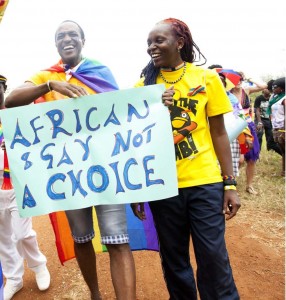 Uganda’s first gay pride has been hailed as a milestone of achievement for LGBT Africa.Â
Uganda’s first gay pride has been hailed as a milestone of achievement for LGBT Africa.Â
We often hear about African LGBTI people being persecuted by their governments, and in addition, being raped, murdered, and socially-ostracized from their communities. Their infantalization in the media is evident via the plethora of news reports that have essentially chronicled the queer African movement as mainly a series of violent acts, political debates, and perceivably (at least to the west) rare moments of triumph.
But is there ever triumph without steadfast resistance? More importantly, what exactly is triumph to queer African people whose lives and humanity exist in the every day, and not just within the 5 minute scan of the latest sensationalized news story?
How often do we hear stories about two African lesbians falling in love, not as part of a political debate, but as idle banter over fish and chips? When was the last time we heard about a group of LGBT Africans partying just because — and not necessarily tied to a social cause?
When people think about queer African people, how often do they imagine them as happy, empowered, and even ordinary? Can we really only picture their liberation as a photo of a scantily clad African man wearing a fusion of traditional garb and rainbow colors, an imported western symbol of gay pride?
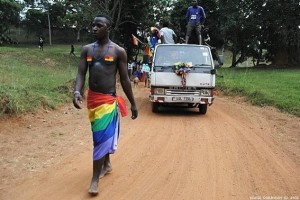
Given the viral sharing of the photo of gay Africans participating in their first gay pride in Uganda (a country described by BBC as “the worst place to be gay”), my guess is that the west has succeeded in painting the faces of LGBT Africans as sad, helpless victims by default, rendering testaments to the opposite surprising, an exception that warrants mass (international) celebration.
Make no mistake. I am thrilled beyond words for my brothers and sisters in Uganda. Given all what they have faced these past few years — from that dreadful “Kill Bill” to the loss of an endeared community leader and activist, David Kato, and even amidst their pride celebration, harassment and arrests by the police – the images of Uganda hosting their first pride backed by a group of happy kuchus is undeniably a powerful symbol of hope.
As Sokari Eine writes on her blog, “If Ugandan Kuchus could march through the streets then so could we all – Nigerians, Liberians, Cameroonians and well the whole continent.â€Â No matter the politics of pride (or even the looming threat of US imperialism through the western foundations that support them), big acts such as the Uganda pride festival are an important part of Queer African history, and thus, worth documenting.
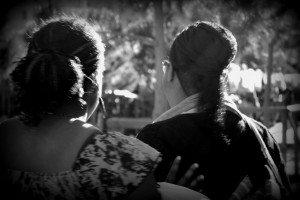
However, during my short time in Cape Town, South Africa, which I’ve spent almost exclusively with individuals from the LGBT community, I’ve seen other remarkable acts worth celebrating.
Nearly every day, I have been reminded of the power of the mundane acts we each take towards our own fulfillment: discussions about family and coming out with my Zimbabwean host, invoking both tears and laughter over Buchu tea; an eruption of giggles by an aspiring human rights lawyer after her girlfriend whispers something in her ear; the silence of a crowd of black South African lesbians as a passionate feminist poet spits truth about the impact of corrective rape on young girls.
I have witnessed the daily grind of empowerment of black South African lesbians, watched them sink and wade through the cultural stigma that surrounds them like a mist, clouding the world’s perception of their lives as ordinarily human. Thus, I have come to re-affirm my belief that we must also celebrate our proud perseverance, our steady survival, just as fervently as we do big, bold acts of bravery.Â
For those of us who have chosen media as our battlefield, it can be easy to forget that LGBTI Africans don’t just live online, or on the streets, for that matter, holding up cardboard signs in perpetual protest; they occupy small apartments with leaky faucets, the residence halls of liberal arts colleges where they hope to launch their careers, and small bungalows in the impoverished rural townships.
Their “pride” may not come in bright rainbow colors, but in the dull pastels of pink and blue collared shirts that call them “lady” when they wish to be “sir”, the dusty brown of their sneakers after practice with teammates that call each other “fag” in jest. Their “pride” will not be heard in the deafening blow of a bullhorn, nor from a platform or podium, but in the awkward silence that follows when they reveal themselves to the people they love, and amidst the painful sighs they let out when they are alone.
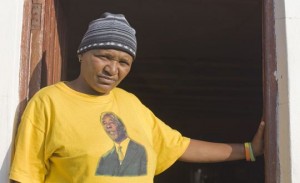 I have come to deeply appreciate activists who often have no time to engage in sensationalized international discourse, because they are too busy doing the heavy lifting that comes with supporting LGBTI Africans living in rural townships. I  have come to honor the “others” who don’t call themselves activists–the every day queer African with financial commitments, awkward first dates, the pursuit of lucrative careers to sustain their families, and who despite all odds, wake up every day and renew their determination to keep living.
I have come to deeply appreciate activists who often have no time to engage in sensationalized international discourse, because they are too busy doing the heavy lifting that comes with supporting LGBTI Africans living in rural townships. I  have come to honor the “others” who don’t call themselves activists–the every day queer African with financial commitments, awkward first dates, the pursuit of lucrative careers to sustain their families, and who despite all odds, wake up every day and renew their determination to keep living.
Unfortunately, many of these small, every day “triumphs†hardly ever get the attention they deserve. Perhaps part of this has to do with the tendency of western countries like the U.S. (who are operating from a different cultural and legislative framework) to re-tell and shape our stories and, in so doing, suggest which parts are worthy of global applause. Or, perhaps many of us are too deep in the trenches to reflect upon our work (and our lives) long enough to view them as achievements in the larger context. In any case, I believe it is time LGBTI Africans begin chronicling our failures and successes as we define them, and more importantly, fill in the spaces in between the bigger milestones, with our voices, our stories, our personal anecdotes.
So, as we celebrate Uganda’s first pride, consider these ten milestones – both big and small, personal and political – that are also part of the Queer African movement and history. These brave and remarkable acts provide me with daily inspiration to celebrate LGBTI African pride everyday, and everywhere, not just in Uganda:
5 Political Milestones
1)Â Health: The opening of an LGBT clinic Kampala, a milestone that would mean year-round care for LGBT Ugandans (vs. a single day-long festival) is worth celebrating, which is why QWOC Media Wire covered it: This is What Africa’s Resistance Looks Like
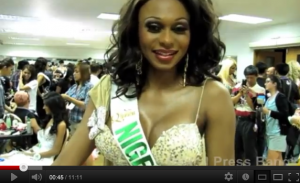
2) Entertainment: Miss Sahara, a Nigerian Igbo woman, competed in the Miss International Queen pageant for transgender women, and came in second!
She became Nigeria’s first openly transgender celebrity. Her visibility (and success) at the pageant, incited many conversations about what it means to be a trans person from Africa.
My name is Miss Sahara, and I’m from Nigeria …I just want to make a statement that because I’m a Nigerian doesn’t mean I can’t be a transgender woman… I would like to believe that I am beautiful. I’m here to make a statement.
3)Â Politics: Joyce Banda, president of Malawi, released a statement asserting she will support LGBT rights and protections, making her the second African woman president (after Liberia’s president Sirleaf) to come out in support of LGBTI African people, sort of.
4)Â Media:Â 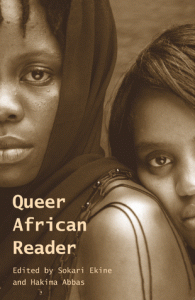 Pambuzuka Press recently announced the release of the Queer African Reader, a collection of writings, analysis and artistic work (intended primarily for an African audience).
Pambuzuka Press recently announced the release of the Queer African Reader, a collection of writings, analysis and artistic work (intended primarily for an African audience).
The anthology, edited by activists, Sokari Eine and Hakima Abbas, focuses on intersectionality while including experiences from a variety of contexts including rural communities, from exile, from conflict and post-conflict situations as well as diverse religious and cultural contexts.
5)Â Community: Amidst the racism and xenophobia in Cape Town’s male- and white-dominated gay scene, HOLAA (Hub of Lesbian Action for Africans), a new Black South African queer community-building organization and group blog hosted their first event, Poetic Just-Us. Simply put, it was beautiful.
5 Personal (And, Yes, Also Political) Milestones
6) The Power of Community: My Africans for Africa fundraising campaign to offer free social media and online fundraising training to African women and LGBT organizations surpassed its goal of $7.5K and raised well over $10K! Over 160 individuals contributed to the idea that LGBT African people can and should speak for themselves; the support I’ve received via this project has re-affirmed my belief in the statement, “It takes a village…”
7) The Power of Friendships: My best friend, who I nearly lost due to a clash between her religious views and my sexuality, came full circle after nearly five years apart and wrote a guest post for my blog, “Homophobia is UnChristian.”
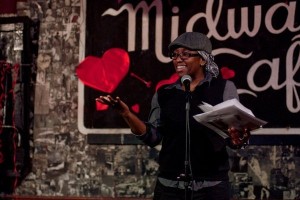
8) The Power of Words: A queer Nigerian reader and supporter sent me a message recently letting me know that my writing had inspired her to come out to her own parents!
“Just wanted to say, thank you for all that you do… Your bravery and humongous heart have inspired me to come out to my Nigerian parents as well as ignited a passion to aid LGBTQ Africans, especially Nigerians in our fight to be visible.”
What I love about this milestone it’s that it’s actually not one, but two; it is mine, certainly, for knowing that my words are meaningful, but it is also my dear friend’s, for taking the big leap and sharing her whole self with the people she loves.
9) The Power of New Media: As a wonderful addition to my Curve Magazine feature, “This is What an African Lesbian Looks Like”, I was featured in Ms. Magazine as an African feminist blogger to watch.
Not only was I the only queer-identified one (which is important to note as LGBT Africans often experience silence in feminist spaces), but renowned black feminist scholar and NBC show host, Melissa Harris Perry, shared on Twitter that my interview was one of her favorite reads.
10) The Power of Love: I recently made the “the ultimate commitment” to my partner :) In a world in which queer Africans are persecuted simply for loving, the bold, boastful, boundless love I have for my partner (and that she has for me) is absolutely an act of rebellion, or healing, of liberation, worth celebrating.
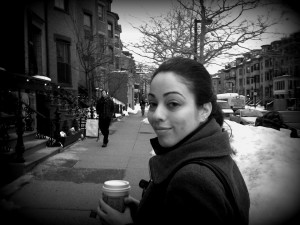
What other remarkable acts should the LGBT African community be sharing? What acts or milestones often go unnoticed? Why do you think that is? How can we be mindful of sensationalism and the hierarchy of achievement it perpetuates in our movements?
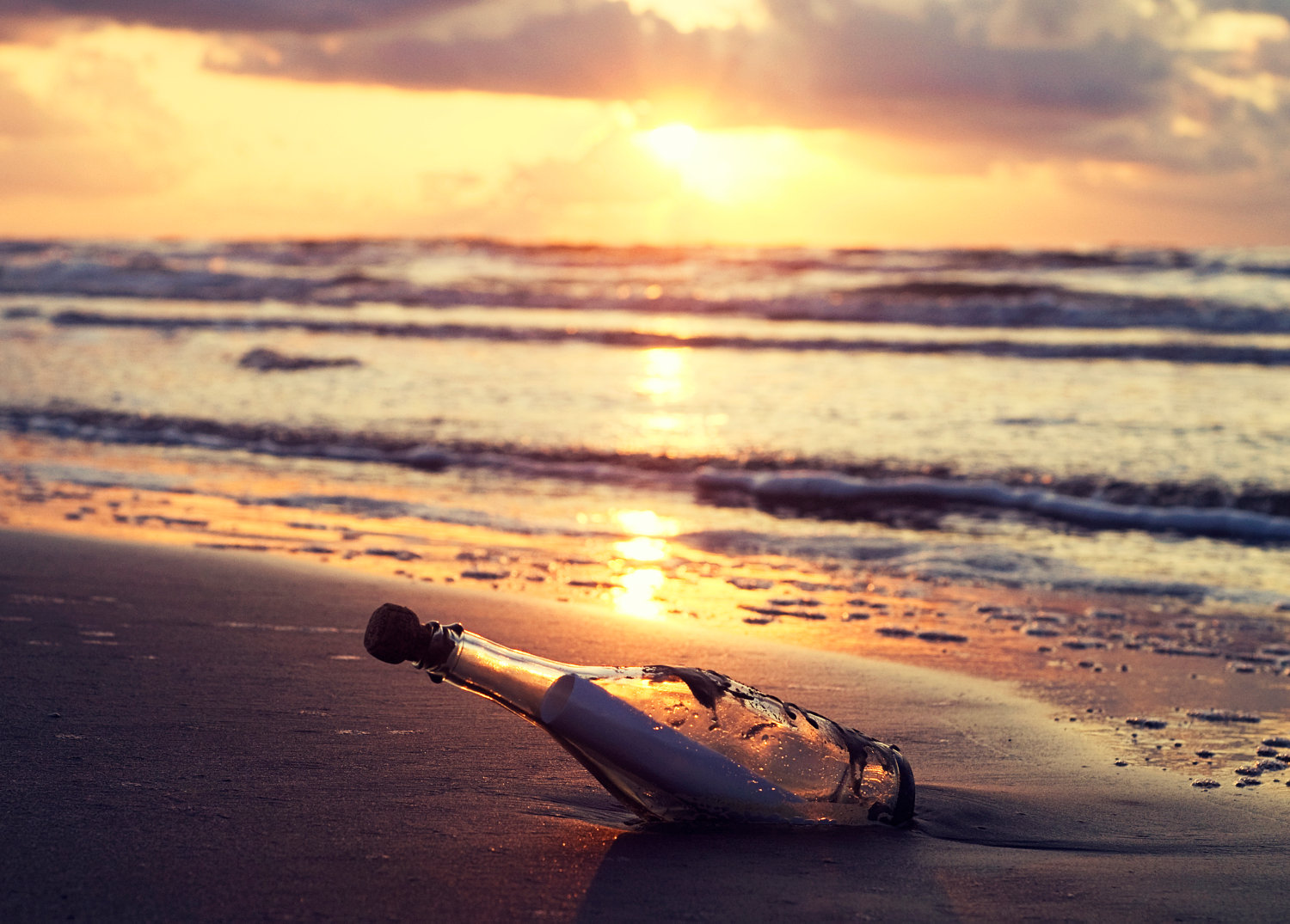

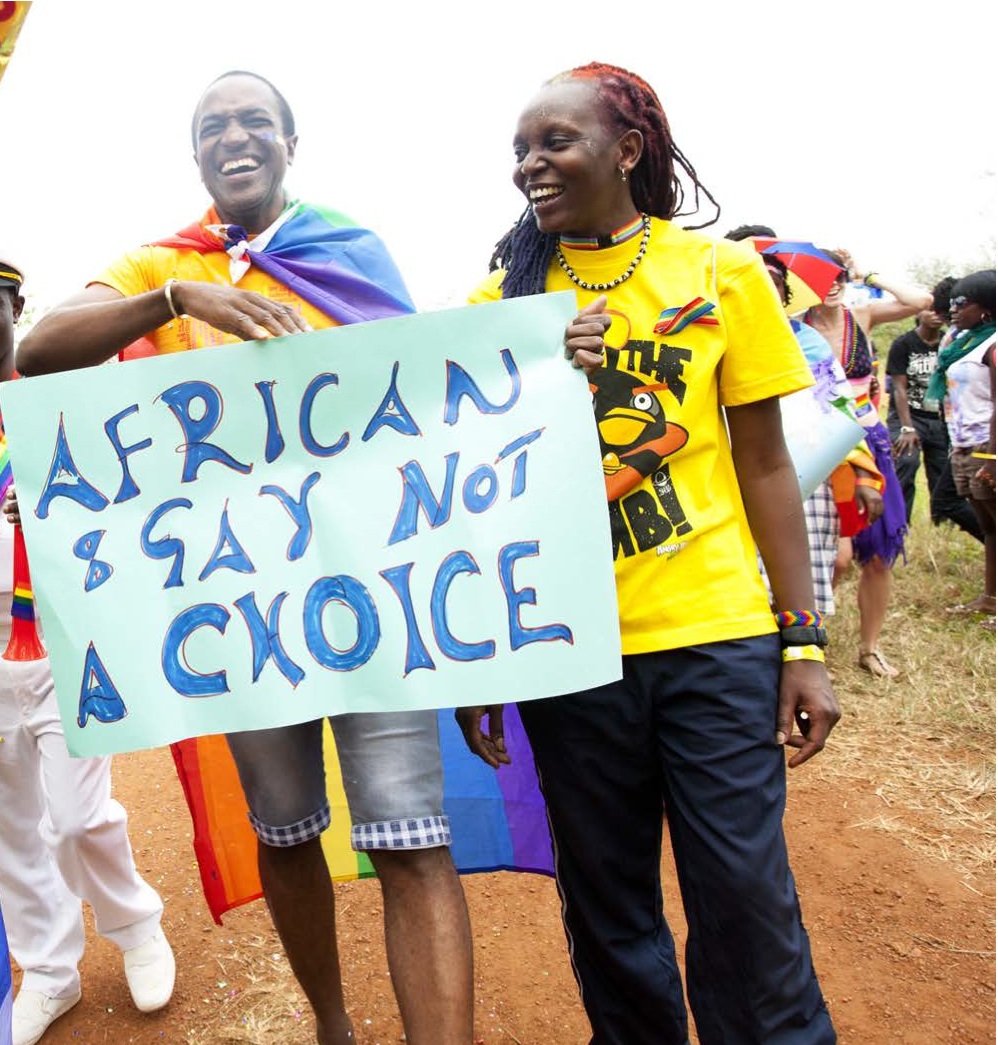
 Uganda’s first gay pride
Uganda’s first gay pride

 I have come to deeply appreciate activists who often have no time to engage in sensationalized international discourse, because they are too busy doing the heavy lifting that comes withÂ
I have come to deeply appreciate activists who often have no time to engage in sensationalized international discourse, because they are too busy doing the heavy lifting that comes with 



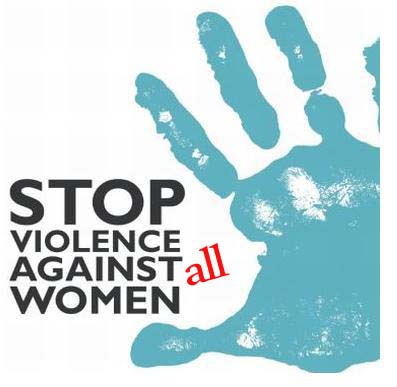
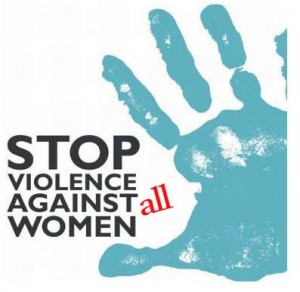
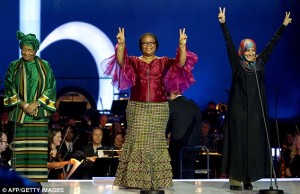 For one, a clear stance against using culture as an excuse for the mistreatment of women is already included in this protocol. In fact, President Sirleaf of Liberia arguably earned her presidency on a platform that challenged tradition; her work advocating for the rights of women has even
For one, a clear stance against using culture as an excuse for the mistreatment of women is already included in this protocol. In fact, President Sirleaf of Liberia arguably earned her presidency on a platform that challenged tradition; her work advocating for the rights of women has even 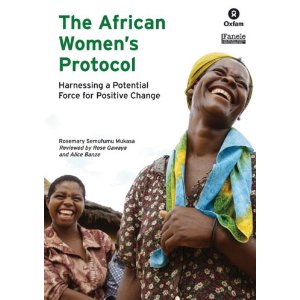 I foresee some resistance to this of course. In my experience, many African women (even those doing human rights work), much like Liberia President Sirleaf, still view discrimination based on gender identity and sexual orientation as separate from women’s issues, often paralleling them when they should be discussing them as intrinsically connected. But the same “traditional” gender roles that keep women trapped in
I foresee some resistance to this of course. In my experience, many African women (even those doing human rights work), much like Liberia President Sirleaf, still view discrimination based on gender identity and sexual orientation as separate from women’s issues, often paralleling them when they should be discussing them as intrinsically connected. But the same “traditional” gender roles that keep women trapped in 

